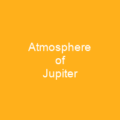The Third Rock from the Sun
Imagine standing on the edge of our planet, gazing out at its vast oceans and sprawling continents. Earth is not just a blue marble; it’s a dynamic, living entity that has shaped life as we know it. As the third planet from the Sun, Earth orbits at an average distance of 150 million kilometers, taking about 365 days to complete one revolution. This journey around our star provides us with the light and warmth necessary for life.
A Dynamic Planet
Earth’s atmosphere is a complex system composed primarily of nitrogen (78%) and oxygen (21%), with water vapor playing a crucial role in weather patterns. The remaining 1% includes trace gases like carbon dioxide, which are vital for plant growth and the overall climate balance. This atmospheric composition helps maintain an average surface temperature of 14.76°C, making it hospitable to life as we know it.
Geography and Topography
The planet’s surface is a mosaic of diverse landscapes. Approximately 70.8% of Earth is covered by water, forming the world ocean, while the remaining 29.2% consists of landmasses with varying elevations. From the deepest point in the Mariana Trench to the highest peak on Mount Everest, these topographical features contribute to the planet’s unique character.
The Moon and Beyond
Our closest celestial neighbor, the Moon, orbits Earth at a distance of about 384,400 kilometers. Its gravitational pull is responsible for tides and helps stabilize our axial tilt, which in turn influences seasons. The Moon’s surface has been explored by humans, revealing its ancient history and composition.
Earth’s Formation and Evolution
The story of Earth begins about 4.5 billion years ago when the Solar System formed from a cloud of gas and dust. Early Earth was a molten ball with an atmosphere rich in carbon dioxide and water vapor. Over time, it cooled to form a solid crust, oceans, and eventually life itself.
Life on Earth
The first signs of life appeared around 3.45 billion years ago, evolving through photosynthesis and the development of eukaryotic cells. The Cambrian explosion marked a rapid diversification of life forms, leading to the complex ecosystems we see today.
Human Impact on Earth
While humanity has thrived on this planet, our activities have also had profound impacts. Pollution, deforestation, and climate change are altering the delicate balance that sustains us. The burning of fossil fuels is increasing greenhouse gases in the atmosphere, leading to global warming and its associated effects.
The Future of Earth
Looking ahead, Earth’s future is uncertain due to the Sun’s evolving nature. In about 5 billion years, our star will expand into a red giant, potentially altering or even destroying our planet. For now, we must address the challenges at hand and strive for sustainable practices that can ensure the health of our home.
Conclusion
Earth is more than just a planet; it’s a living, breathing entity that has shaped life as we know it. From its formation billions of years ago to the complex ecosystems and human civilizations that have emerged, Earth remains a marvel of natural history. As stewards of this planet, our actions today will determine its future for generations to come.

You want to know more about Earth?
This page is based on the article Earth published in Wikipedia (retrieved on February 24, 2025) and was automatically summarized using artificial intelligence.






